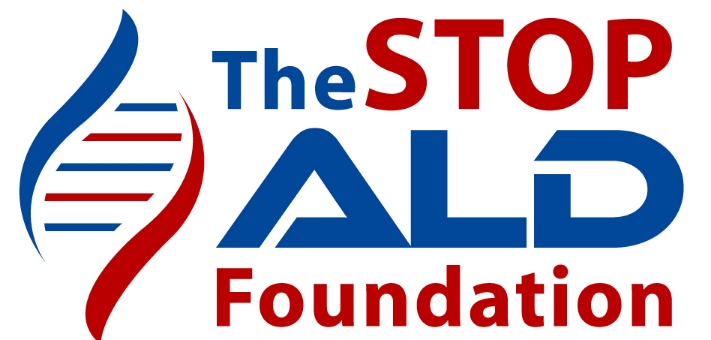Clinically Relevant Abstract
Tuesday, December 9, 2008: 8:00 AM
304-306-308 - South (Moscone Center)
Marina Cavazzana-Calvo, MD, PhD1, Nathalie Cartier2*, Salima Hacein-Bey Abina1*, Gabor Veres3*, Manfred Schmidt4*, Cynthia Bartholomae4*, Michel Vidaud5*, Liliane Dal-Cortivo1*, Laure Caccavelli1*, Nizar Malhaoui6*, Pierre Frange6*, Veronique Kiermer7*, Denice Mittelstaedt7*, Andrew Simmons7*, Cline Bellesme2*, Francois Lefrore1*, Chantale Lagresle1*, Stephane Blanche6*, Pierre Charneau8*, Muriel Audit9*, Bruno L'Homme5*, Jing Chao Zhao-Emonet5*, Serge Fichelson10*, Francoise Pflumio10*, Anne Dubart-Kupperschmitt10*, <a data-cke-saved-href="http://www.stopald.org/about/people.asp" href="http://www.stopald.org/about/people.asp">Rachel Salzman11</a>*, <a data-cke-saved-href="http://www.stopald.org/about/people.asp" href="http://www.stopald.org/about/people.asp">Amber Salzman11</a>*, Pierre Bougnores2*, Christof Von Kalle4*, Alain Fischer, MD, PhD12* and Patrick Aubourg2*
1Biotharapie, Hopital Necker - Enfants Malades, Paris, France
2Endocrinologie et Neurologie Pediatrique, AP-HP Hopital Saint Vincent de Paul, Paris, France
3Applied Genetic Technologies, Corporation, Alachua, FL
4Translational Oncology, National Center for Tumor Diseases (NCT) / German Cancer Research Center (DKFZ), Heidelberg, Germany
5Facult des Sciences Pharmaceutiques et Biologiques, UMR745 Inserm, University Paris Descartes,, Paris, France
6Unit d'Immunologie et Hematologie Pediatrique, AP-HP Hopital Necker - Enfants Malades, Paris, France
7Cell Genesys, Inc., San Francisco, CA
8CNRS-URA3015, Institut Pasteur, Paris, France
9Genathon, Paris, France
10departement d'Hematologie - INSERM U567, Institut Cochin, Paris, France
11The StopALD Foundation, Houston, TX
12Service d'Immunologie et Hematologie Pediatrique, INSERM, University Paris Descartes, IFR94, AP-HP Hopital Necker Enfants-Malades, Paris, France
We report preliminary results in 3 children with cerebral X-linked adrenoleukodystrophy (ALD) who received in September 2006, January 2007 and June 2008 lentiviral vector transduced autologous hematopoietic stem cell (HSC). We have previously demonstrated that cerebral demyelination associated with cerebral ALD can be stopped or reversed within 12-18 months by allogeneic HSC transplantation. The long term beneficial effects of HCT transplantation in ALD are due to the progressive turn-over of brain macrophages (microglia) derived from bone-marrow cells. For the current HSC gene therapy procedure, we used mobilized peripheral blood CD34+ cells that were transduced ex vivo for 18 hours with a non-replicative HIV1-derived lentiviral vector (CG1711 hALD) at MOI25 and expressing the ALD cDNA under the control of the MND (myeloproliferative sarcoma virus enhancer, negative control region deleted, dl587rev primer binding site substituted) promoter, and in the presence of 4 human recombinant cytokines (Il-3, Stem Cell Factor [SCF], Flt3-ligand and Megakaryocyte Growth and Differentiation Factor [MGDF]) and CH-296 retronectine. Transduced cells were frozen to perform the required (RCL) safety tests. After thawing and prior to reinjection, 50%, 30% and 40% of transduced CD34+ cells expressed the ALD protein with a mean of 0.7, 0.6 and 0.65 copies of integrated provirus per cell. Transduced CD34+ cells were infused to ALD patients after a conditioning regimen including full doses of cyclophosphamide and busulfan. Hematopoietic recovery occured at day 13-15 post-transplant and the procedure was uneventful. In patient P1 and P2, the percentage of lymphocytes and monocytes expressing the ALD protein declined from day 60 to 6 months after gene therapy (GT) and remained stable up to 16 months post-GT. In P1, 9 to 13% of CD14+, CD3+, CD19+ and CD15+ cells expressed ALD protein 16 months post-transplant. In P2 and at the same time-point after transplant, 10 to 18% of CD14+, CD3+, CD19+ and CD15+ cells expressed ALD protein. ALD protein was expressed in 18-20% of bone marrow CD34+ cells from patients P1 and P2, 12 months post-transplant. In patient P3, 20 to 23% of CD3+, CD14+ and CD15+ cells expressed ALD protein 2 months after transplant. Tests assessing vector-derived RCL and vector mobilization were negative up to the last follow-ups in the 3 patients. Integration of the vector was polyclonal and studies of integration sites arein progress. At 16 months post-transplant, HSC gene therapy resulted in neurological effects comparable with allogeneic HSC transplantation in patient P1 and P2.
These results support that: 1) ex-vivo HSC gene therapy using HIV1-derived lentiviral vector is not associated with the emergence of RCL and vector mobilization ; 2) a high percentage of hematopoietic progenitors were transduced expressing ALD protein in long term ; 3) no early evidence of selective advantage of the transduced ALD cells nor clonal expansion were observed.
(This clinical trial is sponsored by Institut National de la Santa et de la Recherche Medicale and was conducted in part under a R&D collaboration with Cell Genesys, Inc., South San Francisco, CA)
Supported by grants from INSERM, the European Leukodystrophy Foundation, Association Francaise contre les Myopathies, Programme Hospitalier de Recherche Clinique of the Health Ministry (AOM 3043) and the European Union Project LSHM-CT-2004-502987.
